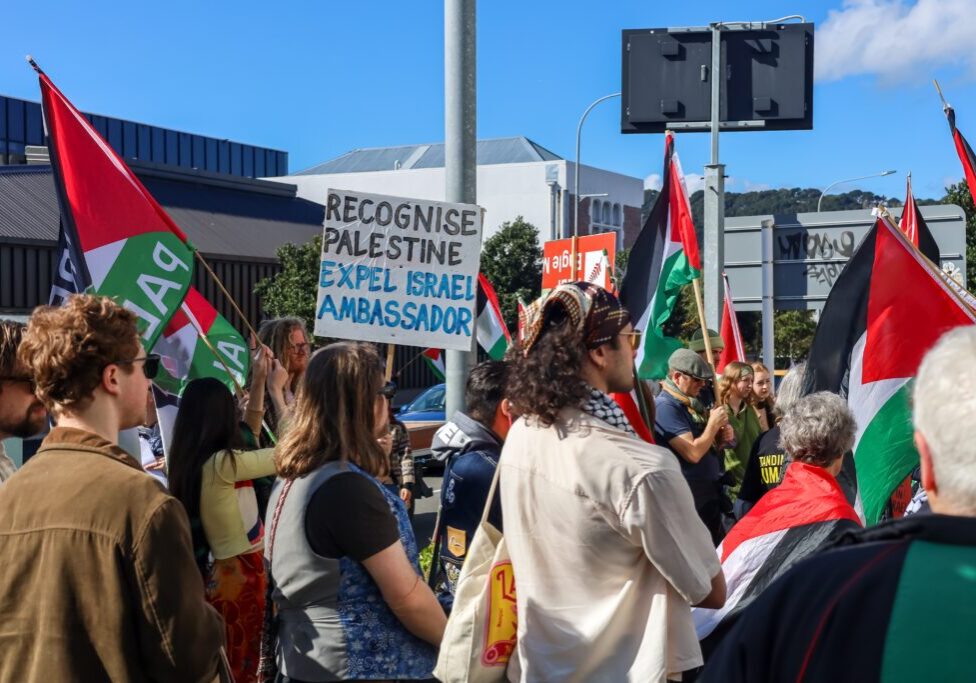Australia/Israel Review
“Economic Peace” and the West Bank
Mar 31, 2009 | Yehonathan Tommer
By Yehonathan Tommer
For the first time since its creation 15 years ago, the Palestinian Authority (PA) in the West Bank ended its fiscal year for 2008 with a balanced budget and a surplus of US$1.5 billion. This is widely attributed to Prime Minister Salam Fayyad and his efforts to insure transparent management of the economy, and reduced government corruption, along with the freer movement of people and goods throughout the West Bank and with Israel.
The relative calm was achieved by close cooperation between Palestinian and Israeli security agencies. Armed militias no longer roam freely and public order has returned through tough law enforcement to the streets of Ramallah, Jenin, Bethlehem and Hebron. “Such a level of efficient and productive cooperation is unprecedented and was never attained even in the heyday of the Oslo peace process,” said Ehud Ya’ari, Arab affairs commentator at Israel’s Channel 2 television network.
“The Annapolis process did not deliver the goods. But it provided an umbrella for a dramatic tightening of economic relations, law and order and joint security efforts between Israel and the Palestinian Authority in the West Bank,” said Ya’ari. “This was especially visible after Hamas’ putsch in Gaza in June 2007. Call it ‘save the West Bank from Hamas,’ but for the time being it is producing pretty good results.”
As the security situation stabilised, more border crossings were opened and road blocks were removed to encourage the flow of people and goods. Today, there are no Israel Defence Force (IDF) road blocks inside Palestinian cities. Five border crossings are routinely open to Palestinian traffic, and private business and commerce has revived. Some 23,000 new permits were issued to Palestinian labourers and contractors for work in Israel, while tourism to Bethlehem and Jericho peaked at their highest level for many years.
West Bank economic activity in 2008 grew between 30% and 35% relative to 2006. Cross border commerce with Israel increased by 42% relative to 2007. West Bank exports grew by 45% and per capita income rose by 3% relative to 2005, according to Arie Zief, a vice president of the Federation of Israeli Chambers of Commerce (FICC) and a member of the Advisory Committee to the Bank of Israel.
Real GNP amounted to US$4 billion in 2008. International aid increased to US$1.7 billion (Arab states accounted for 25% of the total, the US 17%, the European Union 12% and the World Bank 16%). Income from transferred Israeli VAT totaled US$1.5 billion while expenditures totaled US$1.5 billion. “This is impressive growth, the response to expanded calm and lowered risk to investments and points to a new prosperity. West Bankers are purchasing and selling more and consuming more,” said Zief.
However, General (res.) Oren Shachor, a vice president also at the FICC and a former Coordinator of IDF Activities in the Territories, doesn’t foresee ‘big results’ for the Palestinian economy as a whole. The territories include a Hamas-ruled Gazan entity afflicted by 60% unemployment, (according to Palestinian statistics), a downturn of 30% in economic activities and urgent reconstruction needs following Hamas’ war with Israel. A separate West Bank entity depends for its economic momentum on continuing Palestinian and Israeli security cooperation and realised pledges from international donors.
“The situation is complex, embryonic, fragile and sensitive,” says Shachor. “There are no bombings and militant unrest. But this is temporary and could reverse at any time.”
The Palestinian view
West Bankers welcome the significant improvement in public order, law enforcement and the overall security situation which they say helps to promote a better economic environment, but argue it is not enough. Palestinian economists are also much less positive about West Bank economic improvements.
“Checkpoints from and between Palestinian cities have not been removed, though Israeli authorities are more flexible in allowing a freer movement of people and goods,” says Samir Hazboun, an economics professor at east Jerusalem’s al-Quds University and Chairman of the Bethlehem Chamber of Commerce. “Palestinian imports and exports are now also being transferred faster in back-to-back truck transfers at the crossings which the Israelis have widened with extra lanes and… improved, time-saving inspection technologies.”
Perceptions of the Palestinian economy’s performance and future expectations of its growth vary according to differing reports released by the International Monetary Fund and the World Bank, says Hazboun.
“The wholesale, retail and services sectors of the West Bank economy (notably banking, tourism and insurance) have done well in the past 18 months. The work force is increasing as new high school and university graduates join the labour pool, but employment opportunities are not keeping pace. No new factories have been built and despite lowered risks there are no new investments in the private industrial, agricultural and construction sectors, so there is no real economic growth. Unemployment is around 26%. Consumer prices rose by 11% in the third quarter of 2008, so that disposable income has not increased and living conditions have not improved. The economy is still basically subsistence.”
Dr. Semih al-Abid, a consultant to the Palestinian Investment Fund in Ramallah, says there’s been “no fundamental change and improvement in the economy. More incentives are needed through private-public partnerships and foreign investments,” he says.
“Investment forums last year in Bethlehem and Nablus attracted Israeli and international companies but did not materialise investments in new projects in the private or public sector,” al-Abid adds. He fears that the international financial crisis may also prevent donor countries in 2009 from meeting their foreign aid pledges for Gazan reconstruction, where unemployment is around 60% of the workforce.
But if they do and the border crossings are opened, the West Bank economy may experience a downturn if local Palestinian business people divert their investments to more lucrative Gazan reconstruction projects, says al-Abid.
The Palestinian economy, the two men say, will perform at “a minimal level” in 2009, provided the recession in Israel does not deepen and there are no political upheavals in Israel or in the PA.
Salam Fayyad’s resignation in March won’t disrupt the day-to-day management of the economy in the West Bank, they say. Fayyad will continue as the PA’s caretaker prime minister until either a unity government (which he may head) is formed or until fresh elections for president and legislative assembly take place in 2010.
Political process must continue
Economic development, the removal of barriers and road blocks, the enforcement of law and order and security in the West Bank at its present pace can contribute to a political process but cannot substitute for it, says Ephraim Lavie, an IDF reserve colonel and former Arab Affairs adviser and now researcher at Tel Aviv University’s Moshe Dayan Centre for Middle Eastern and African Studies. “In the end, a narrow right-wing Israeli government led by Binyamin Netanyahu will have to find a way of moving forward on the political process along with further improvements in the economic, social and security situation in the West Bank.”
“Israel cannot set aside the Palestinian political issue and say let’s get on with ‘economic peace’ because the Fatah faction and Mahmoud Abbas won’t accept a permanent separation of the West Bank from the (Hamas-ruled) Gaza Strip,” says Lavie. “Without a political process, there is unlikely to be dramatically improved economic development in the West Bank.”
There has to be a political process, Ya’ari agrees, dismissing as “unworkable” timetables and target dates that don’t relate to day-to-day agreements. “[Prime Minister designate] Netanyahu’s ‘economic peace’ is not a bad idea and actually underscores what exists on the ground. But by itself it simply won’t work. The Palestinians cannot commit themselves to such close security cooperation without a political goal of an overall agreement in sight.”
Tags: Palestinians






